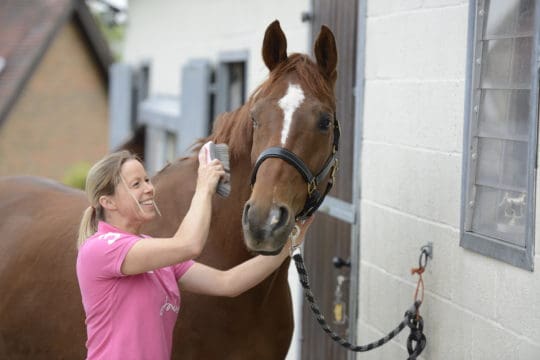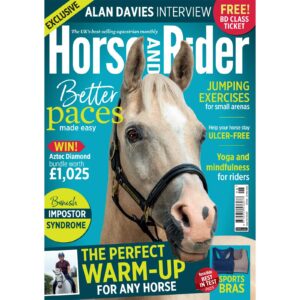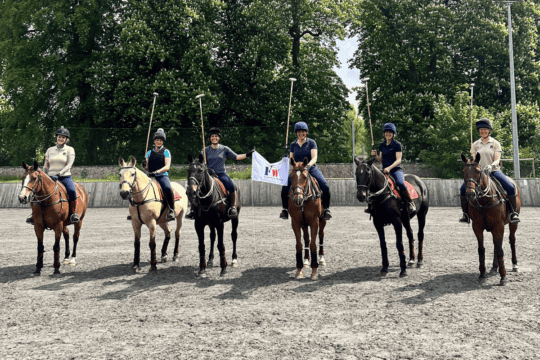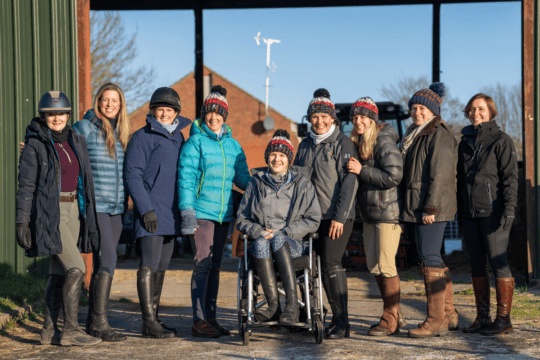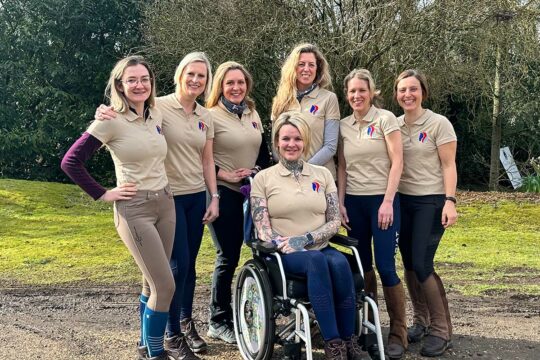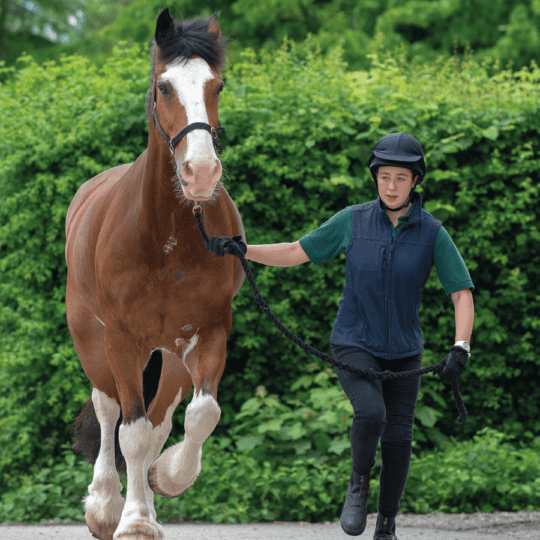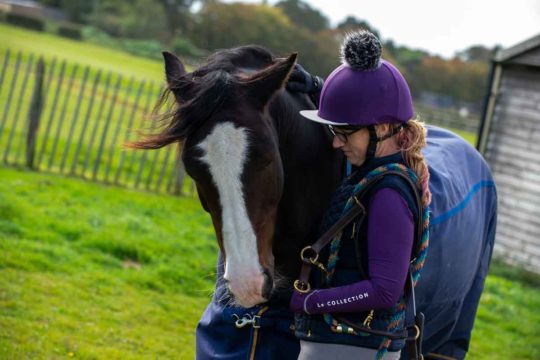
Most Read Articles
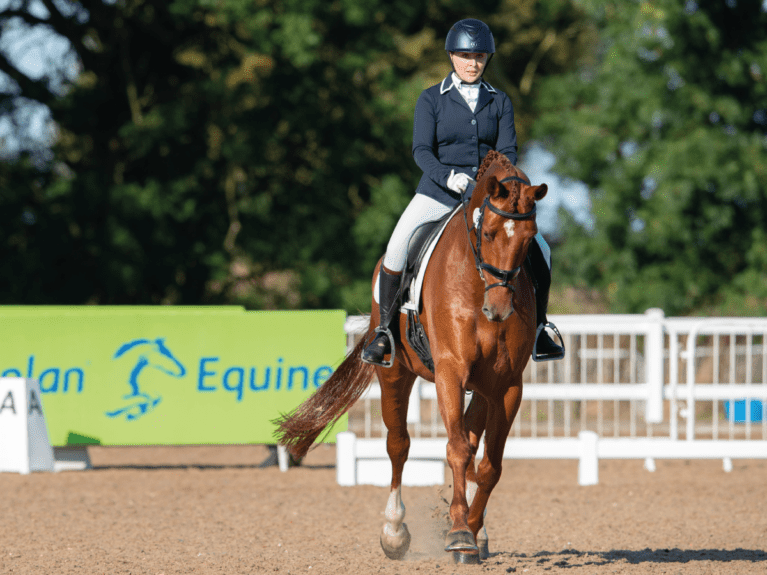
Photo credit: Adam Fanthorpe
Have you ever thought about stepping up to affiliated level in dressage? We look into the different options and discuss the benefits of doing just that
Where to start
First things first, you’ll need to join British Dressage (BD), the governing body for the sport. This needn’t mean spending a fortune – BD has options for spreading the cost of some categories, and if you won’t be competing much you can join for free. Here are the main options…
trial membership is available to new members. It’s a three-month full membership with access to all competitions and member benefits (rider membership £35, horse registration £15)
winter membership is for riders who only want to compete during the winter months (£55 for riders and £55 for horse registration)
full membership costs £95 per year for you and £80 for your horse, with the option to spread the cost over the year (£8.50 per month for the rider and £7 per month for the horse)
community membership is completely free but you’ll need to buy a class ticket (£10 each) in order to compete
club membership is designed for those starting out, allowing members to compete at the lower levels, as well as in amateur championships. It costs from £50 per year
full non-competing membership is available from £60 per year
Did you know?
Many of BD’s championships also include dressage to music classes, when you ride to a freestyle floorplan to the music and level of your choice.
What’s on offer?
Once you’re a member, it’s time to find out what you’re eligible to enter and the section you need to compete in, which is all explained clearly on the BD website. You compete in local competitions to accumulate points towards championship qualification, if it’s championship status you’re after here’s what’s on offer…
Saracen Horse Feeds Quest
What is it? With three levels (Intro, Prelim and Novice) there are two championships to aim for each year, and the option of competing individually (My Quest) or as a team (Team Quest).
Qualification period:
Summer: 1 January – 31 August
Winter: 1 September – 31 December
How to qualify: Your best scores are added to a leaderboard, with the top 10–12 riders and teams in each region going forward to the semi-finals. From here, a total of 32 combinations and 24 teams at each level qualify for the National Championships.
Championships: The semi-finals for the summer league take place from September–October and the National Championships are held in November. Winter league prizes are based on the leaderboard, rather than decided at an in-person championship.
Petplan Equine Area Festivals
What are they? Aimed at grassroots riders, the goal is to qualify for the championships at the end of the season. Area Festivals have classes from Prelim level all the way up to Inter I.
Qualification period:
Summer: 1 January – 30 June
Winter: 1 July – 31 December
How to qualify: Riders qualify on a percentage basis, which requires a set number of scores within the qualification period, but this isn’t as tricky as it sounds. From Prelim– Advanced Medium level you need to gain three scores of 63% or above and for Prix St Georges–Inter I, you must achieve two 60% and above scores.
Championships: Summer Area Festivals take place from July–August and the winter ones are held from January–February, with the championships in April and October.
Cavago Associated Championships
What are they? A championship designed for similar types – in 2022 the classes were Arab horse, British native pony, draught horse, GB PRE, Lusitano, TGCA, coloured, RoR, Thoroughbred, veteran horse, veteran rider, forces equine and side saddle. Depending on which category you compete in, there are classes from Intro all the way to Prix St Georges.
Qualification period:
1 January – 31 August
How to qualify: You need to achieve three scores over 60%, or two scores of over 60% if you’re competing at Prix St Georges.
Championships: In 2023, the championships will run at Bury Farm, Buckinghamshire, and Vale View Equestrian Centre, Leicestershire. At the time of going to press, the dates were yet to be confirmed, but they usually take place in late autumn.
Regional Championships
What are they? Aimed at more experienced competitors, with classes across all levels, they offer the chance to qualify for the prestigious National Championships, which take place twice a year.
Qualification period:
Summer: 1 January – 30 June
Winter: 1 July – 31 December
How to qualify: Earn points by competing in BD competitions. You’ll need a minimum score and a total number of points, depending on the level you’re competing at (it’s 66% and 20 points at Prelim, for example). Then, the highest scores from each region qualify for the National Championships.
Championships: Winter regionals take place February–March and summer ones are held July–August. The Winter National Championships take place in April and the Summer National Championships in September.
What to wear
From Intro to Advanced Medium level, riders are required to wear a short jacket (with the option of wearing a tail coat from Advanced level upwards), a protective hat, a correctly tied stock or collar and tie, and plain white, beige or canary yellow breeches. Gloves must be worn and boots can be long or short (worn with gaiters). Spurs can be worn at all levels.
In Team Quest and My Quest competitions, the dress code is more relaxed (you don’t need to wear competition gear), so why not go matchy-matchy and give your team a bright and vibrant look?
Don’t leave anything to chance, though. If in doubt, or to check your tack and equipment follow BD guidelines, visit the website britishdressage.co.uk
Claim your free BD class ticket in Spring Horse&Rider – grab your copy today and turn to page 137 to claim your ticket!

